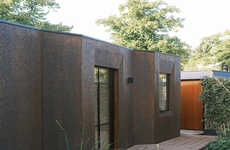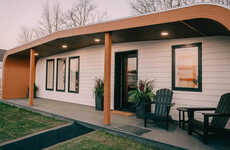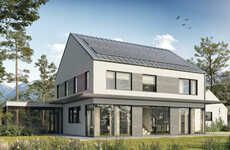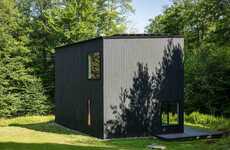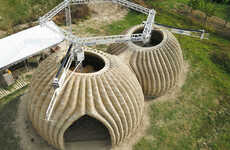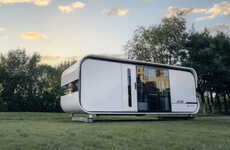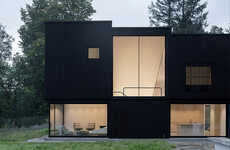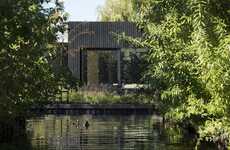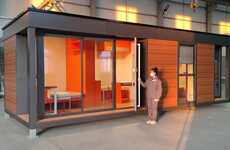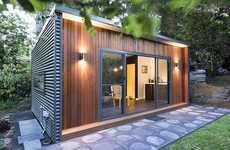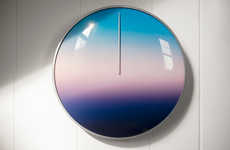
Finch Buildings Designs Homes Intended to Leave Zero Carbon Footprint
Michael Hemsworth — May 9, 2016 — Eco
References: finchbuildings & homecrux
The market for sustainable homes is showing steady signs of increasing, but now Finch Buildings is looking to take things a step further. The Netherlands-based startup has created a way for consumers and businesses to create spaces that can be reconfigured when the need arises.
Crafted from recyclable materials and other materials focused on low-energy consumption, the sustainable homes could be utilized as houses, student residences, hotels and more. Naturally, the Finch Building units would be powered via the incorporated solar panels and would harvest rain to help supply residents with water. Energy-efficient appliances would be the norm throughout and aim to have the lowest possible effect on the environment. In time, the designs from Finch Buildings could help to revolutionize how we think about structure design.
Crafted from recyclable materials and other materials focused on low-energy consumption, the sustainable homes could be utilized as houses, student residences, hotels and more. Naturally, the Finch Building units would be powered via the incorporated solar panels and would harvest rain to help supply residents with water. Energy-efficient appliances would be the norm throughout and aim to have the lowest possible effect on the environment. In time, the designs from Finch Buildings could help to revolutionize how we think about structure design.
Trend Themes
1. Modular Construction - Disruptive innovation opportunity: Develop modular construction methods to create flexible and reconfigurable spaces for various purposes.
2. Sustainable Architecture - Disruptive innovation opportunity: Design and construct environmentally friendly buildings that minimize carbon footprint through the use of recyclable materials and energy-efficient appliances.
3. Renewable Energy Integration - Disruptive innovation opportunity: Integrate solar panels and rainwater harvesting systems into building designs to reduce reliance on traditional power sources and conserve resources.
Industry Implications
1. Construction - Disruptive innovation opportunity: Incorporate modular construction methods and sustainable practices into residential, commercial, and hospitality building projects.
2. Real Estate - Disruptive innovation opportunity: Foster demand for sustainable and versatile homes and properties that align with eco-conscious consumer preferences.
3. Energy Efficiency - Disruptive innovation opportunity: Develop energy-efficient appliances and systems that can be seamlessly integrated into sustainable building designs.
5.5
Score
Popularity
Activity
Freshness

